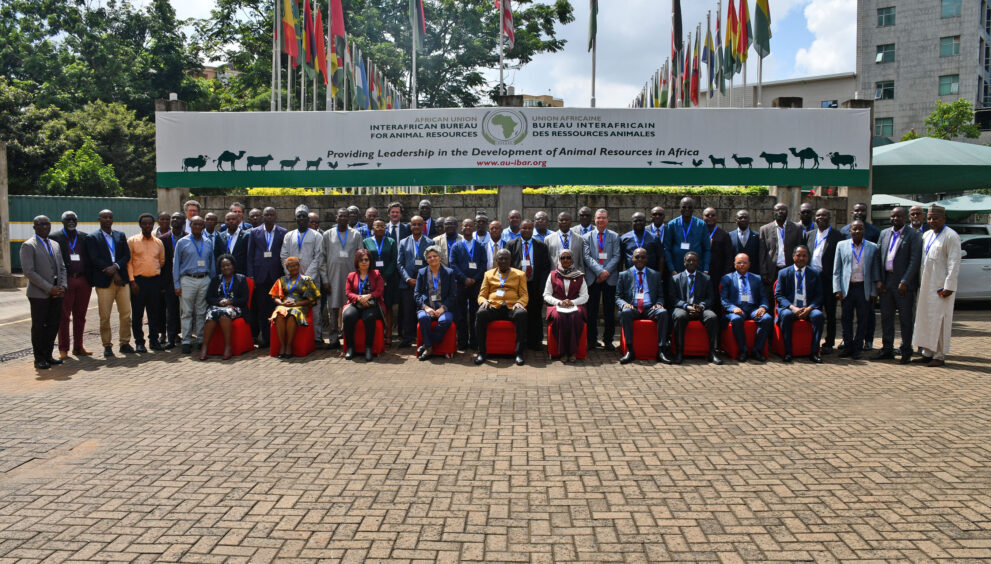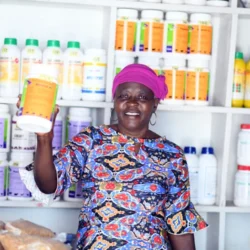African leaders in the animal resource sector recently convened to address animal health challenges that impede the prevention and control of priority transboundary and zoonotic diseases.
The two-day meeting, held from May 14-16 2024 in Nairobi, Kenya, brought together chief veterinary officers (CVOs) and delegates from Regional Economic Communities (RECs) and various countries to discuss the main capacity development needs required to strengthen the continent’s animal health systems, and strategies for meeting standards and accessing markets while safeguarding public health.
With changing global trade patterns, emerging diseases and shifting climate conditions, the safety and health of animal value chains, as well as the integrity of animal commodities for domestic consumption, value chain development and international markets, have been affected.
Within the African continent, the Inter-African Bureau for Animal Resources (AU-IBAR) supports and coordinates the utilization of livestock, fisheries, and wildlife as resources for both human well-being and economic development in the Member States of the African Union (AU). Consequently, FAO assists member countries with policy development, capacity building, and technical support, while the World Organization for Animal Health (WOAH) establishes international standards to govern the safe trade in animals and animal products, while safeguarding public health and promoting market access.
Regional collaboration among AU-IBAR, with FAO and WOAH is fostered under the framework of the Global Framework for the Progressive Control of Transboundary (GF-TADs), to prevent and control the priority TADs that remains challenging within African Union Member States.
The first part of the meeting was dedicated to discussing how African nations can improve progress in implementing WOAH standards considering the effectiveness of African nations in international standard setting. The meeting also focused on reviewing and developing African positions for presentation at the 91st General Session of the WOAH with the aim to address the continent’s needs, improve livelihoods, foster economic development, and secure food and nutrition by promoting access to African animal products in international markets through sustainable livestock transformation.
The second day of the meeting featured strategic discussions on sustainable livestock transformation in the African region through enhancing One Health system capacities for the control of high impact diseases and antimicrobial resistance (AMR). Progress and challenges in the control of priority transboundary animal diseases such as highly pathogenic avian influenza (HPAI), foot-and-mouth disease (FMD), contagious bovine pleuropneumonia (CBPP), and peste des petits ruminants (PPR) were provided. AU-IBAR led the discussion on validation of the regional strategy for the control of African swine fever (ASF) which was developed through FAO support. Given the importance of the pig sector in the livelihoods of many rural African communities and the continent’s food and nutritional security, the CVOs examined and reviewed the draft regional strategy for ASF, aiming for unanimous adoption of the strategy and proposed action plan. Participants were also informed on the last 33rd FAO regional conference where a resolution was made for the eradication of PPR by 2030.
The meeting provided a great opportunity to update progress on the upcoming framework on One Health in agrifood system transformation, and key updates on the Quadripartite collaboration to support countries on the One Health Joint Plan of Action (OHJPA) implementation. In particular, FAO’s InFARM Platform for Surveillance of antimicrobial resistance in food and agriculture and the recently launched Reduce the Need for Antimicrobials on Farms (RENOFARM) initiative were highlighted as FAO’s response to the global threat of AMR.
Information sharing and partnership strengthening facilitated the exchange of case studies on FAO support to countries. This meeting significantly contributed to strengthening partnerships among AU-IBAR, WOAH, FAO, and other stakeholders. By facilitating inter-regional dialogue and strategy formulation, the participants can address challenges and report progress in priority disease control and eradication strategies, thereby strengthening animal health systems, One Health, capacity development, and leveraging investments.




